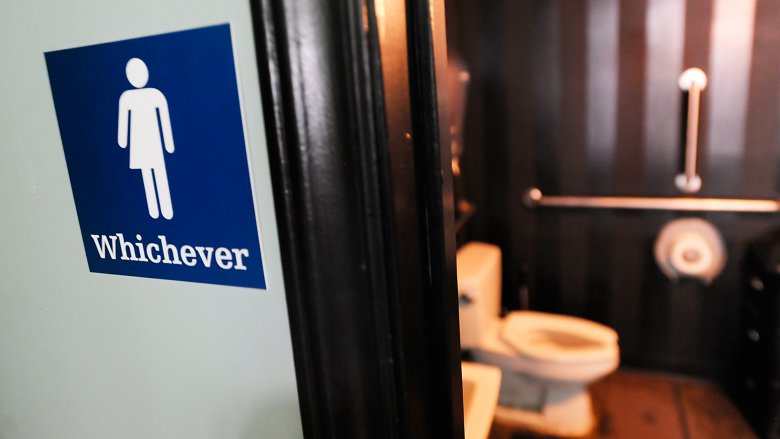What Happens When You Hold Your Pee?
Peeing is just one of those biological necessities that there's no way around. When you've got to go, you've got to go, but sometimes there's no convenient place to do your business. At one point or another, we've all experienced the agony of a full bladder. What happens when you're stuck in traffic, or the line to the restroom is winding down the hallway and you have no option but to hold your pee?
Holding your pee isn't just uncomfortable, it can be unhealthy. According to Healthline, most doctors recommended that people pee every three to four hours. The average adult can hold one and a half to two cups of urine before needing to hit the toilet. Resisting the urge to go to the bathroom could lead to a UTI. "Urine that remains in the bladder for longer periods of time places you at greater risk of infection," Dr. Robert Glatter told Bustle.
Holding it too long might also wear out your sphincters (the muscles that hold the urine in your body), leading to leakage. You might even damage them if you're trying to hold too much urine. If you regularly hold your pee for long periods of time, you also run the risk of stretching your bladder, which means you'll eventually end up needing to pee more throughout the day.
When you hold your pee, it might feel like your bladder is about to burst...and it actually can. While this is a super unlikely outcome, it's not totally out of the realm of possibility, and it's more likely to happen if you have past issues with your bladder. "This usually occurs in the setting of prior bladder injury or scarring from surgery or past inflammation," said Glatter.
Yes, sometimes it's impossible to avoid having to hold in your pee, but the less often you do it, the better. We aren't suggesting that you pee in public whenever you have the urge to go, but the best thing to do is to get yourself to the nearest bathroom ASA, uh, P.
